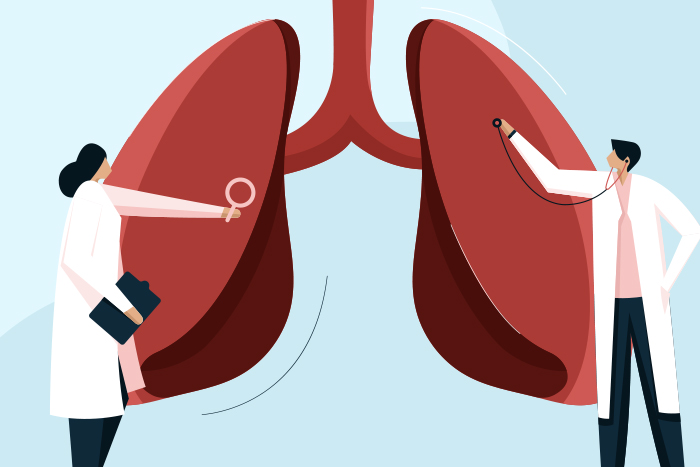What You Need to Know About How COPD Affects Your Body
When people think about chronic obstructive pulmonary disease (COPD) is a long-term lung disease that makes it hard to breathe. It includes conditions like chronic bronchitis and emphysema, which cause damage to the lungs over time.
Most people think of COPD as a breathing problem—and it is. But it's also much more than that. COPD affects your entire body, from your heart to your brain to your energy levels. It can even impact how you feel emotionally.
Understanding how COPD impacts your whole body can help you take better care of yourself and talk to your doctor about what you need to feel your best. Here’s a simple guide to what’s really going on.
How COPD Damages the Lungs Over Time
COPD includes two main conditions: chronic bronchitis and emphysema. In both cases, the airways and air sacs in your lungs become damaged and inflamed. This makes it harder to move air in and out.
Over time, this damage gets worse. Your lungs can’t exchange oxygen and carbon dioxide like they used to. As a result, your body may not get enough oxygen, and waste gases can build up. This leads to symptoms like coughing, wheezing, and feeling winded—even when you’re doing simple things like walking or getting dressed.
If you ever have trouble breathing or feel like you’re in an emergency, a medical alert device can help you quickly get the help you need.*
The Link Between COPD and Heart Disease
When your lungs don’t work well, your heart has to pick up the slack. It pumps harder to try and get oxygen to the rest of your body. This extra strain can lead to heart problems over time.
People with COPD are more likely to develop high blood pressure in the lungs (called pulmonary hypertension), irregular heartbeats, and even heart failure. According to Harvard Health, COPD makes the heart work harder, especially the right side, which pumps blood to the lungs.
Why Low Oxygen Levels Make You Feel Tired
Oxygen is fuel for your body. When you don’t get enough of it, you may feel tired all the time, even if you’ve had a good night’s sleep. With COPD, your lungs can’t take in and deliver enough oxygen to keep your muscles and brain energized.
This lack of oxygen can cause fatigue, confusion, and brain fog. You might feel like your body just doesn’t want to cooperate, or like everyday tasks are harder than they used to be. Using supplemental oxygen or doing breathing exercises may help, but it’s important to let your doctor know if you feel unusually tired or light-headed.
COPD and Your Mental Health
Living with a chronic illness like COPD can be tough on your emotions. You might feel frustrated that you can’t do the things you used to, or anxious about not being able to catch your breath.
Many people with COPD experience depression and anxiety. According to the American Lung Association, shortness of breath can trigger panic attacks, and feelings of isolation can lead to sadness.
It’s important to know you’re not alone. Talking to your doctor, a counselor, or even joining a support group can make a big difference. Mental health is just as important as physical health when managing COPD.
Other Parts of the Body Affected by COPD
Because COPD lowers oxygen levels, it can affect other organs, too:
Muscles may weaken, especially if you become less active due to shortness of breath.
Kidneys rely on good blood flow and oxygen. Poor oxygen levels can reduce kidney function over time.
The brain may be affected by low oxygen, leading to memory problems or trouble concentrating.
This is why staying active, eating well, and following your treatment plan are so important. Every little step helps your whole body.
COPD Is More Than Just Your Lungs
COPD is more than just a lung problem. It affects your heart, your energy, and even how you feel emotionally. The more you understand how COPD impacts your body, the better you can take steps to manage it.
Make sure to check in with your doctor regularly, ask questions, and don’t be afraid to ask for support. You deserve to feel as good as possible, and help is always available.
Sources:
Mayo Clinic: COPD
American Lung Association: COPD and Emotional Health
Harvard Health: A breath-robbing disease that's hard on the heart
*Disclaimer: Healthcare Select may earn a commission if you purchase a product or service through links to our partners. This comes at no extra cost to you.

